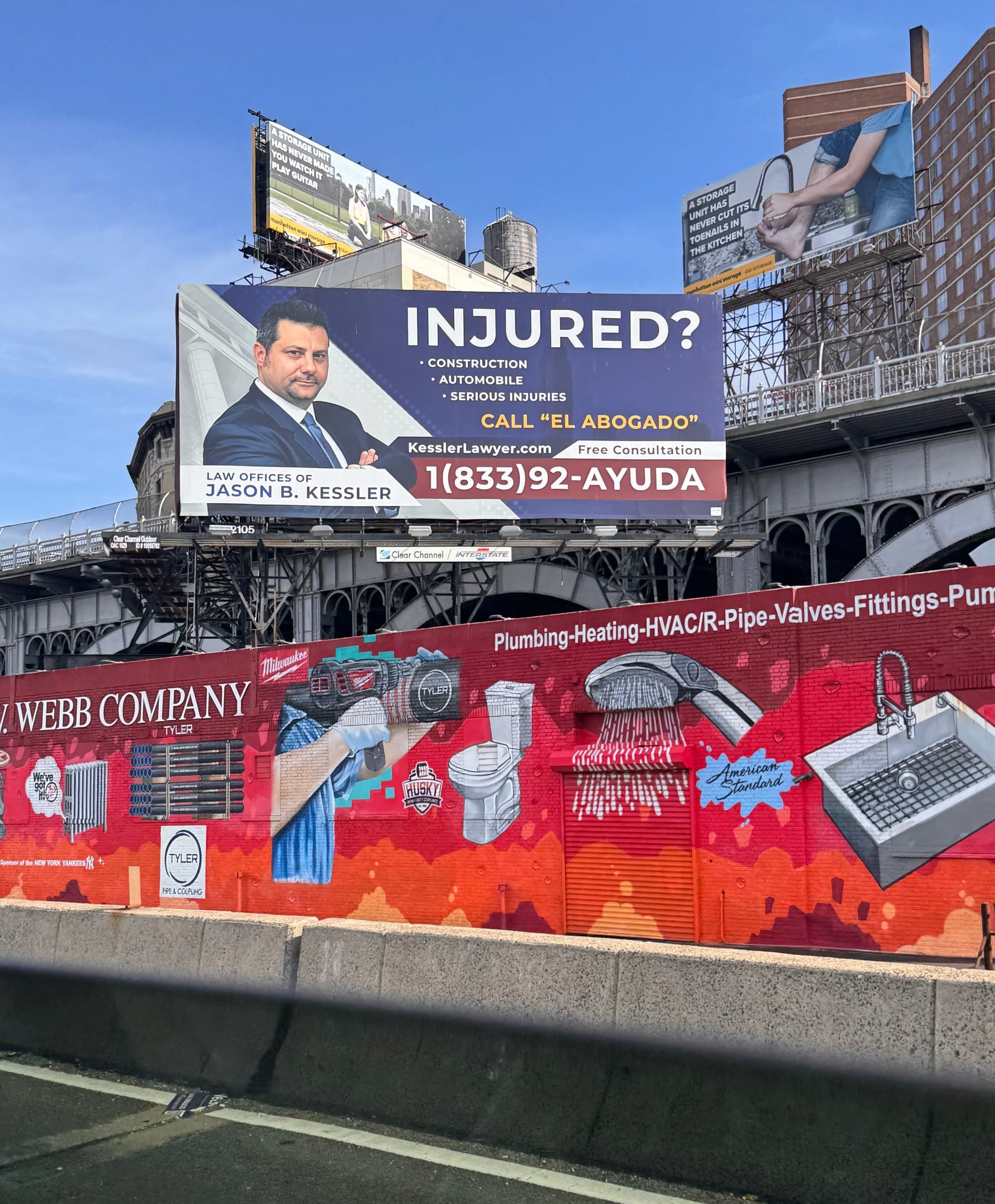
Rhonda was in town over the weekend and we hung out around billionaire's row, eating at diners and smoking joints in Central Park, talking about the responsibilities that humans have to each other (and ourselves).
Would just like to say that Rhonda is a great friend and collaborator who listens, validates, and challenges, and all three of those things in the same human is gold.
This new publishing consistency is a direct result of her influence and I just cannot express how much I appreciate her as a friend and a collaborator.
Being stoners, we spent some time sitting on the couch in her suite on the 40th floor, watching Elephant Graveyard videos. The one below is a masterful explanation of how people get trapped in reality bubbles, as told through the lens of Joe Rogan and modern 'comedy'. It's 90-minutes but worth it.
89 minutes of new media genius.
Midtown on the weekend is mostly full of visitors, and New Yorkers are there to serve those visitors. Rhonda and I both try to be playful with people, but it's interesting how people have to edit themselves in front of their clients, or their boss, or their bosses' clients, and often that extends to us.
We all have to edit ourselves depending on who we're talking to, and that's true if you're a newspaper, or a private citizen just living life.
I wanted to take the Propaganda Model developed by Edward Herman and Noam Chomsky, and apply it beyond corporate media to explore how their 5 filters apply to our daily lives and hinder public and private discourse.
But first some images from the weekend.


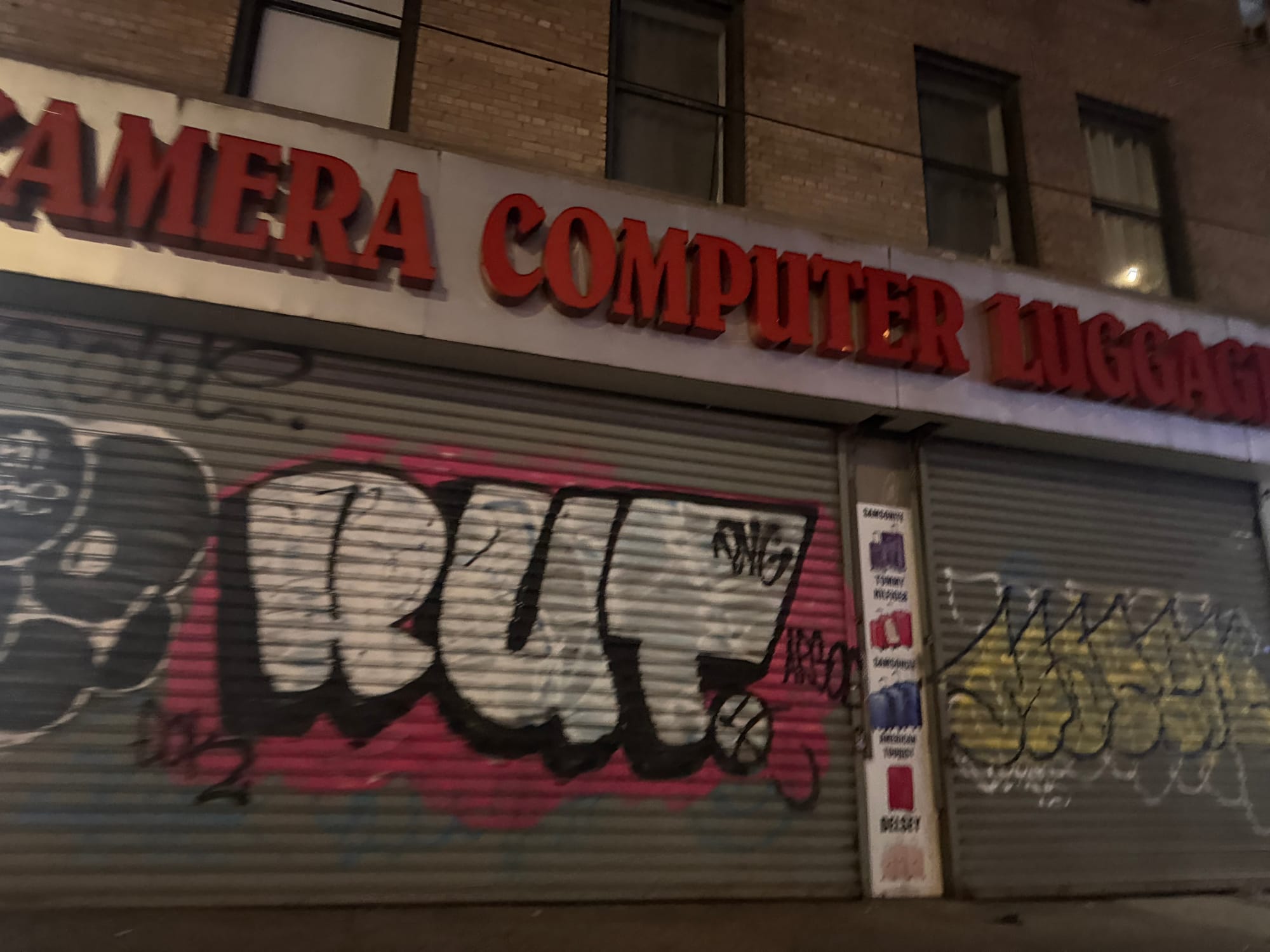
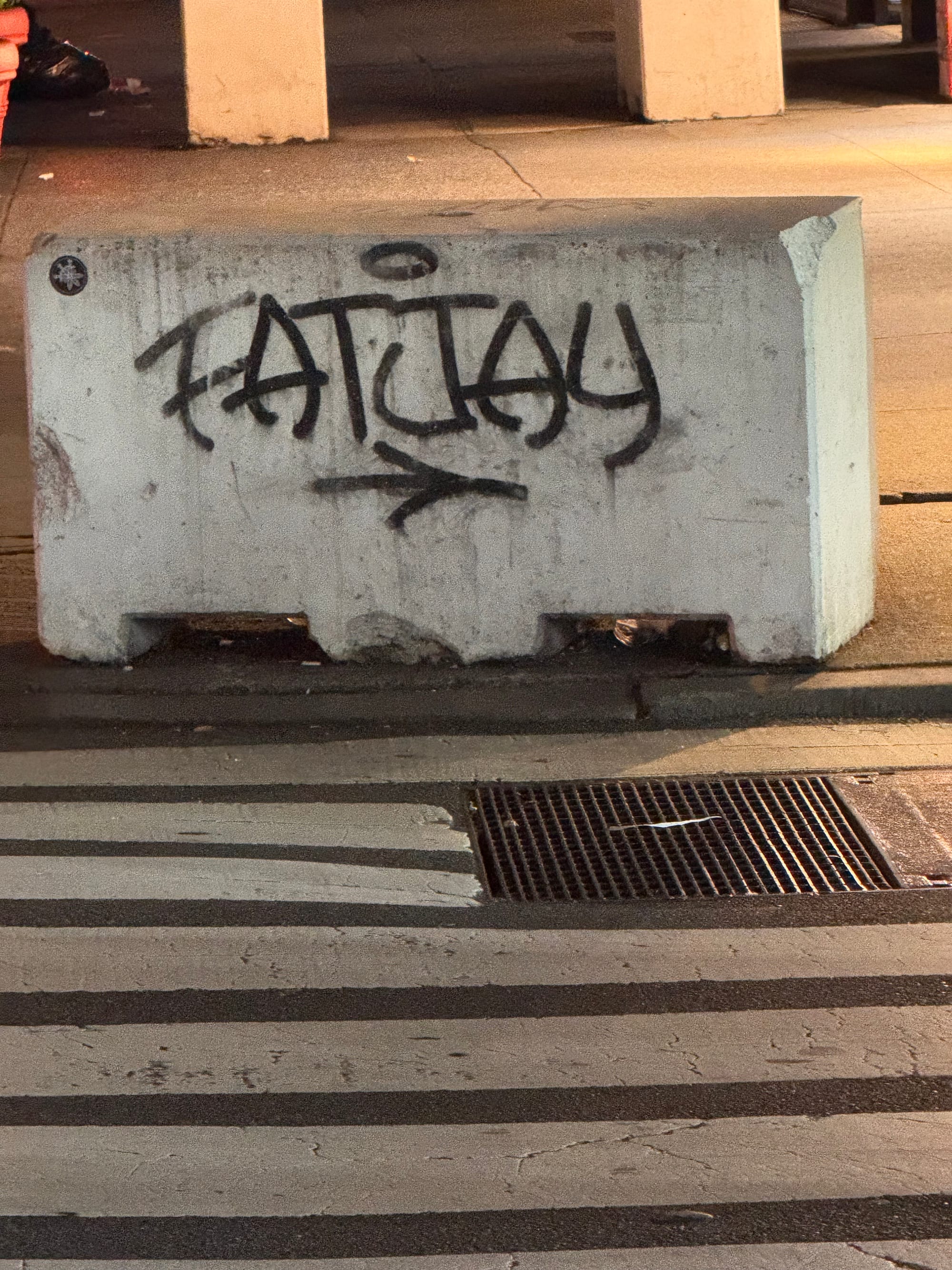



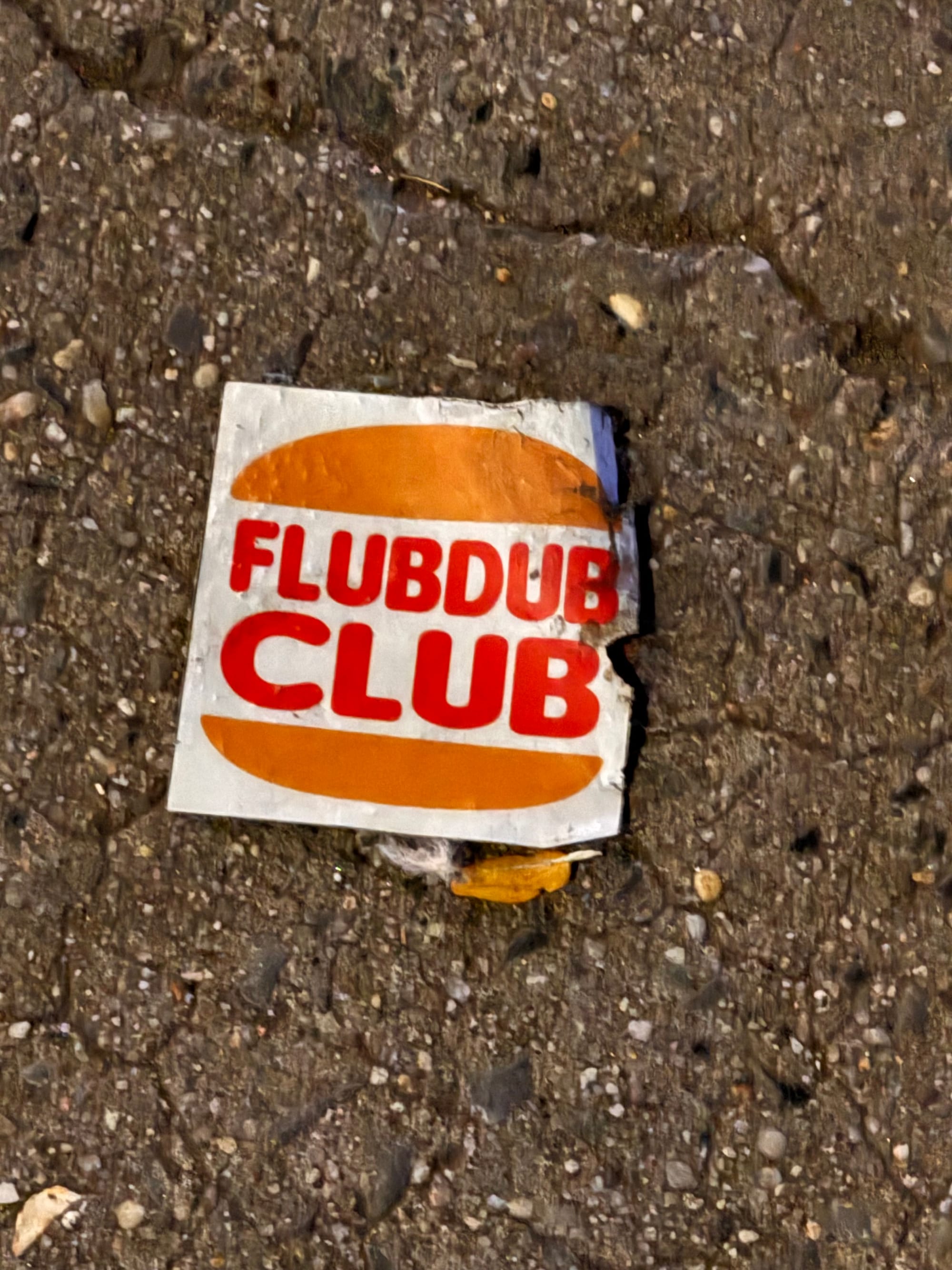
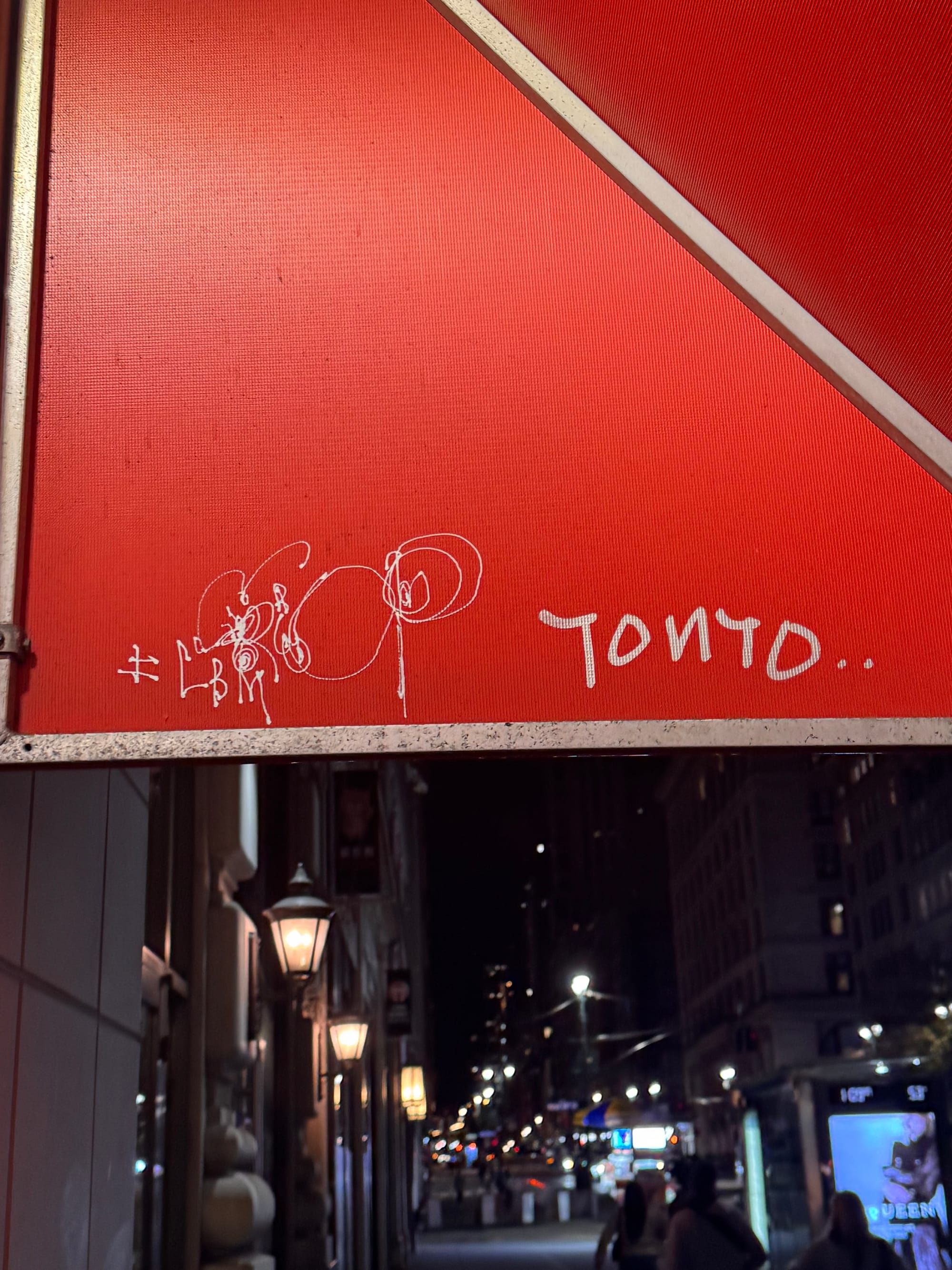

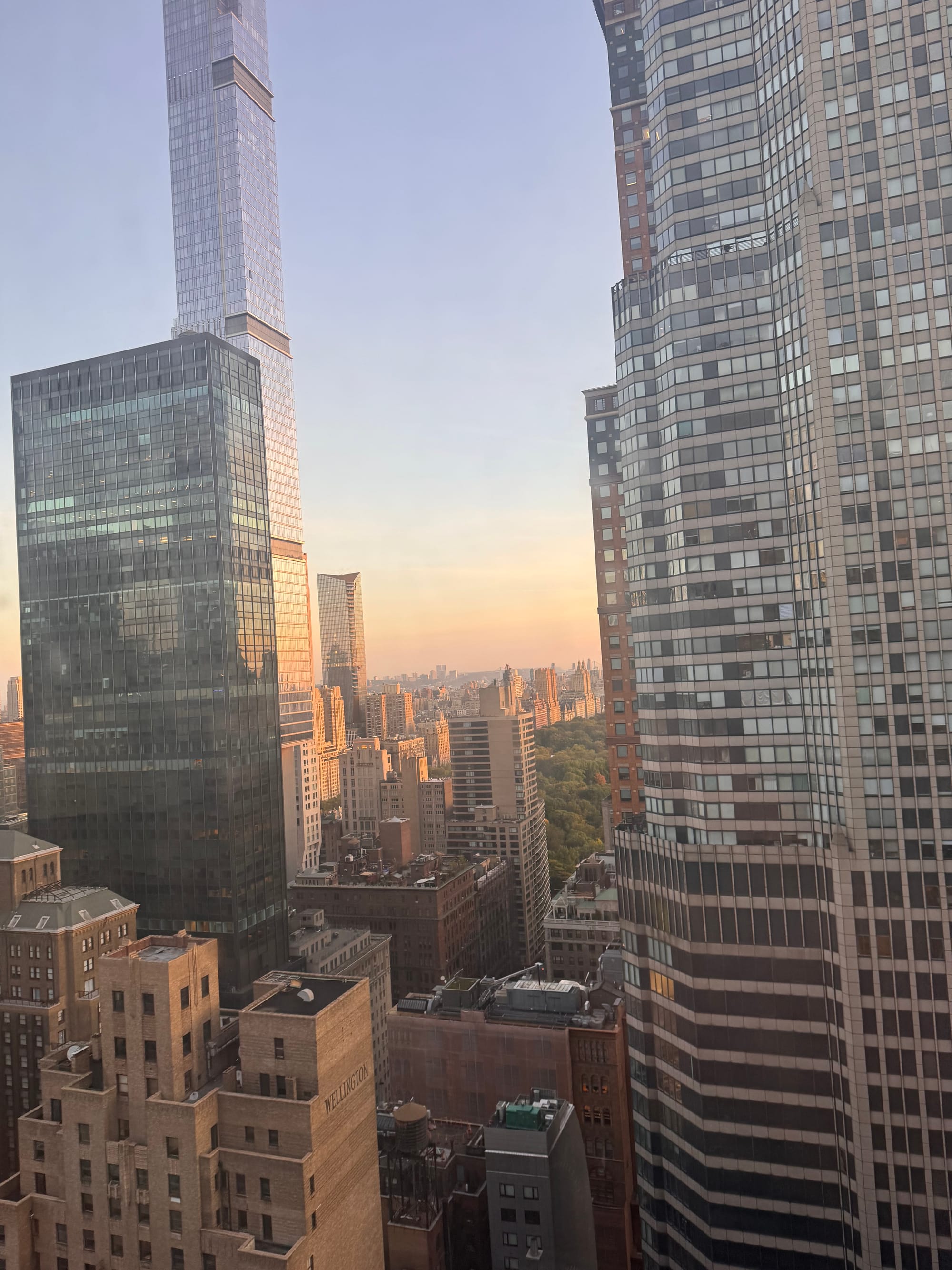



Pics from the weekend.
The 5 Layers of Information Sanitization
Herman and Chomsky's propaganda model was built to explain how honest discourse is filtered out of corporate mass media. But the 5 filters can be applied to our daily lives as well.

1 - Ownership
As a rule, reporters don't cover their shareholders or their shareholder's friends.
That's a great way to get demoted, fired, or even blacklisted.
Ownership decides who's on the inside and who gets what, and as a result, it acts as an information filter as well, because people don't give negative information to people who can punish them for it.
This is true at the corporate level, or the king level, but also in our personal lives.
It's holding your tongue when your friend plays a terrible song because they're giving you a ride to work.
It's your parents refusing to listen because "it's their house".
It's deciding not to share a time-saving process improvement because you're worried your boss will take it as an insult.
Because people who 'own' stuff can punish those around them, they build up a durable reality bubble around them, which reinforces their heroic narrative.
They begin to believe that their decisions are moral and effective because the people around them are withholding information out of fear.
In general, things go badly when only a few people control resources needed by many.
Ownership is also gate-kept, which makes this first filter even more restrictive. Fit-and-Proper-Persons Tests keep out undesirables. Co-op boards meet to decide who to exclude from their building. The bride and groom get to decide who's at their wedding.
It's not always wrong to do this, but it is always an information filter and it is easy to go too narrow. God forbid they wear the wrong brand of cloth to the event.
What we all know is that the more concentrated ownership becomes, the more tyrannical and out of touch ownership becomes, and the more the not-owners suffer. And the owners won't even know because they've filtered it out of their personal narratives, and out of the mass media narratives as well.
That's how propaganda works.
2 - Advertising
If you don't have anything nice to say, don't say anything at all.
Most speech is selling, in one form or another. Please take out the trash is as much a call to action as any headline copy.
But we have a bias for simple, easy decisions. We don't want things to be technically difficult or morally complicated, because that adds work and cognitive load. So when we sell to each other, we often leave off the downsides or the externalities.
Please take out the trash because there's a bear outside is a very different message. And sales people usually just want you to take the action, without worrying too much about the impact it has on you.
That's why advertising is the second information filter. Advertisers at a corporate level don't want emotional or intellectual drag around their sales messages, because that will depress action, and associate them with 'negatives'.
Same is true when our friends and family are trying to convince us of something. They always filter out the downside.
3 - Sourcing
Nobody wants to talk to a snitch. If you share information that makes people look bad, they won't talk to you again, and they might retaliate. This is obviously true with Pentagon reporters being asked to censor themselves, but it's just as true of your best friend or your co-worker or the customer service rep you're trying to get to go to bat for you.
Nobody will share with you if you talk bad about what they're doing, threaten their resources, or compromise their relationships.
This is sadly why I can't write about a lot of the most interesting stuff that happens around me. 😦
And it's also why it's hard to get honest information from people inside projects or companies. Negative information gets filtered out.
4 - Flak
In corporate media, flak is Public Relations agents who will swarm and harass you if you oppose a position they are being paid to protect.
But this happens at the personal level too.
People carry out smear campaigns for their friends, allies, and customers all the time. Sometimes just for personal reasons.
If you're going to reveal negative information about someone, you have to take into account who will attack you for it, and how, because people back each other up even when they're not a big corporate PR firm.
5 - Fear
The final filter is fear and dread, which are popular tools that are used to control people at a societal, corporate, and even individual level.
In the corporate mode, fear is a tactic for propping up the entire business-as-usual scheme. It HAS to be done this way, they'll argue, or the sky will fall. Never mind that this is rarely fact-checked. The surveillance state built up after 9-11 is a great example of this.
But the same thing happens in your daily life. Without data, people will predict negative outcomes to avoid taking action or even having an uncomfortable thought.
If you quit, you'll never find a better job.
What will the neighbors say?
You're with THOSE people?
No daughter of mine would ever...
People use fear to filter out rational decisions that make them uncomfortable, risk resources, or violate social norms. That's why immigrants are so frequently used as a scapegoat. It's easy to make people afraid of things they don't understand. But fear is the only thing that gets smaller as you move towards it.
"A lie will fly around the whole world while the truth is getting its boots on." - Mark Twain
How to Avoid the 5 Filters
These five filters destroy the quality of information we get at all levels, from corporate media to the gossip at work.
Truth does not get through the filters, but lies do. That's why the truth is whispered and lies are shouted.
In The United States, in public discourse, only commercial speech is truly allowed.
Honesty, complexity, and negative externalities are filtered out of most communications, and we're left with dumb, implausible, and downright dishonest information time and time again.
No wonder people fall for bullshit. Our information has been mashed through these 5 filters for centuries.
So what can we do about it?
Recognize them. Call them out. Refuse them when you can afford to.
- Understand that the owners are going to pay the writer to make the story as favorable as possible.
- Know that advertisers are 'data-driven' and most don't have the guts to take an actual position.
- Appreciate that sources are always going to want to look good, and always going to want their opponents to look bad.
- Call out the flak's real reason for attacking back, and point out what they're getting from it.
- Discern when there's a real reason to fear, or just somebody trying to biohack you.
If you pay attention to these filters, you will notice them everywhere, and you can override them by asking questions that free the truth the filter is designed to trap.
You have to be discerning. It takes work. But given these 5 filters, almost all information should be questioned before it is accepted.
Like that section at the top about Rhonda. Notice how glowing it is. Is that ownership propaganda trying to spin a narrative?
Or am I really just trying to express love and appreciation for my incredible friend?
I leave it for you to decide.
Dan Flag
